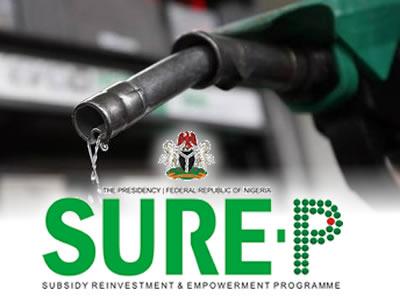March 22, 2015
The Nigerian government yesterday announced a 2 percent drop in revenue for the month of February, from N410 billion in January to N401.5 billion this month. Jonah Otunla, the Accountant General of the Federation blamed the drop on lower oil, gas and other revenues. The lower revenue meant that the Federation Accounts Allocation Committee had a lesser sum to share across the tiers of government. Also, it did not save an money in the Excess Crude account, and, interestingly, did not allocated to the Subsidy Reinvestment and Empowerment Programme, popular known as Sure-P.
The lack of money for the programme means it might be nearing its end despite its conceptualization as a social assistance scheme.
Nigeria launched Sure-P in January 2012 in response to the national strike that greeted its withdrawal of petrol subsidy. It had said it would use Sure-P to reinvest its share of the subsidy savings into programmes and initiatives that would ease the pain of subsidy removal. Three years on, however, the government is finding it difficult to fund the programme and reports are that it is considering shutting it down. In December, Chairman Sure-P, Gen. Martin Luther Agwai (rtd) told journalists that shortfall in oil revenue meant leaner pockets for the programme. “The big thing is the issue of shortfall [of oil revenue],” he told journalists in December. “When the coordinating minister for Economy and Minister of Finance presented the proposed budget to National Assembly, the SURE-P budget was N102 billion for next year. I think this year alone, roads and bridges got N104.2 billion. You can see that what only roads and bridges got this year is more than the whole SURE-P budget for next year…. If the trend should continue I don’t know whether there will be SURE-P after next year.”
The fears of a shutdown are becoming even more real. Yesterday, the Minister of State for Finance, Yuguda told journalists that the government would not give the program the de facto monthly allocation of N35.5 billion for the month of February because of the fall in oil prices. With revenue not expected to climb anytime soon, analysts believe Sure-P may not be getting any other money in the future.
The imminent end of Sure-P is particularly good news to the states who have been campaigning for its scrapping. Timothy Odah, the Chairman of the Finance Commissioners Forum, the group of the head of the States’ ministries of Finance, said after the announcement of the February allocation that “the states would like to appeal to President Goodluck Jonathan to allow the scrapping of the Subsidy Reinvestment and Empowerment Programme.” He said with most states in heavy debt due to payment of salaries and completion of projects, the scrapping of the programme would make money available.
There has also been criticism from the National Assembly, which, in 2013, threatened to shut down the program due to allegations of the non remittance of N500 billion dollars saved from subsidy removal as well as worries over transparency and perception of its ineffectiveness. The threat was subsequently abandoned.
Despite the loud calls for its abandonment, Sure-P still has firm supporters who believe it is fulfilling its duty as a social buffer for the masses. Then Chairman of the programme, Christopher Kolade, had in 2013 rebuffed the calls for its shutdown, stating that it was fulfilling its role of special intervention on social and welfare projects. “If, for instance, a road contract was awarded say in 2006 and it is still not finished, by putting some funds from SURE-P, you can accelerate the finishing of that road,” he said. The Programme also displays countless projects ranging from repair and construction of roads and bridges to intervention in unemployment and health problems as evidence of its relevance and effectiveness.
However, regardless of any support or opposition for the programme, Nigeria’s current cash-strapped state means it may lack the needed fund to keep it afloat.
Source: Ventures Africa




